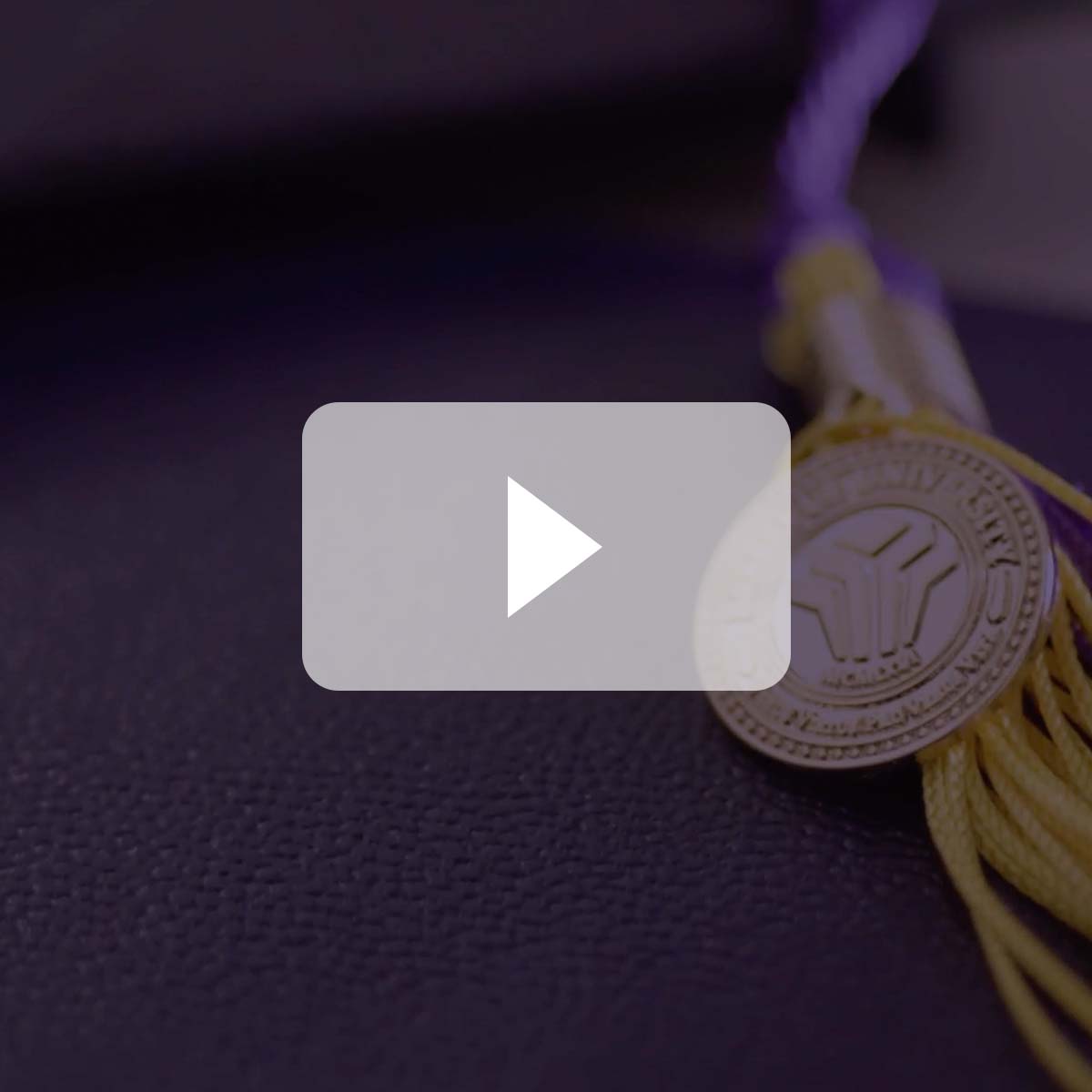How to find the best schools to transfer to: 6 factors to look for.
College isn’t always a straight, continuous path for students. Some learners realize the school they initially chose isn’t the right fit. Others take a break to focus on work or raising a family. There are even students who begin in an associate program with the intention of transferring from their community college to a university later on.
The fact of the matter is that you’re not alone if you’re thinking about continuing your education at a different school. In fact, a report from the U.S. Department of Education reveals that nearly 35 percent of first-time college students transfer schools within six years of beginning a program.
Before you restart your studies, you should first find the best schools for transfer students. To do that, you need to know what criteria to search for.
6 features you’ll find at the best schools for transfer students
No matter your background, you’ll want to find a college that checks each of these boxes. It can help ensure not only that your previous coursework will be recognized but also that you receive the high-quality education you need to meet your goals.
Each college or university is free to establish their own policies regarding whether they will accept your old — or recently earned — college credits. It’s in your best interest to thoroughly research different colleges’ transfer policies to get a better understanding of what you can expect. Some institutions are rather restrictive, but schools like Bellevue University will allow you to transfer an entire associate degree — even an Associate of Applied Science (AAS) — and apply it toward a bachelor’s degree.
Choosing a school with a liberal transfer policy is a wise choice even if you don’t have an associate degree. And there shouldn’t be any need to guess whether your previous coursework will count toward a bachelor’s program.
“If a student has been to another college, even if it was only for two or three classes, I always offer to have their credits evaluated,” says Amanda Angle, an undergraduate admissions counselor at Bellevue University.
It’s safe to say that not all learning occurs within a classroom. Most working adults develop valuable skills and deepen their knowledge base through life experiences. The best schools to transfer to recognize this, and they’re happy to offer credit for education that’s been acquired in practical settings.
Alternative credit offerings vary by school, but there are a few you should be particularly aware of. The first is credit for military training or service, which transfer-friendly schools usually award based on the recommendations outlined by the American Council on Education (ACE) Military Guide. You can also test out of certain courses through Advanced Placement (AP) exams, the College-Level Examination Program (CLEP), or DANTES Subject Standardized Tests (DSST).
Another option is to earn credit for work experience or training, which typically involves some sort of evaluation. The process itself differs from one institution to another.
Choosing a school that’s known for accepting a considerable number of credits is a good place to start, but you stand to benefit even more by transferring to a university that has a formal partnership with your current or previous school. These relationships, called articulation agreements, ensure the smoothest possible transition for students who are transferring from a community college. The basic idea is that you can pick up your bachelor’s degree program right where your associate degree program left off without having to retake any courses you previously completed.
If you have yet to obtain an associate degree, you can still benefit from this type of arrangement. In fact, starting out at a community college to complete as many degree requirements as you can is a great way to make the overall cost of your education more affordable. It might seem tricky to choose a school for your associate degree and one for your bachelor’s degree at the same time, but it doesn’t have to be. Bellevue University has articulation agreements with a long list of community colleges all across the country.
Any college can claim to be among the best for transfer students, but it’s far more telling when a school has earned awards and high ranking to verify this. For instance, Bellevue University has been named a 2021 member of Phi Theta Kappa’s Transfer Honor Roll — this marks the fifth year for receiving the recognition. Additionally, College Factual has ranked Bellevue University among the top 5 percent in its rankings of the best schools for nontraditional students.
It’s also helpful to know that some institutions really stand out to students who are still in the early stages of determining how they want to proceed with their college education.
“I get a lot of feedback that we are extremely responsive to their inquiries,” Angle says. “We were either the quickest to reply, or we followed up the most frequently.” She adds that, in some cases, students don’t even hear back from other institutions by the time her team has followed up three or more times.
When you think about it, transferring your completed coursework is really like getting a head start on your education. This means it might not actually take you four years to complete a four-year program.
“Students are usually so excited to see how their transfer credits apply toward a degree with Bellevue University — and how quickly they might be able to complete a degree,” Angle says. Remember, if you can finish sooner, your education may be more affordable.
But the best colleges to transfer to are budget-friendly before even factoring in your prior coursework. For Instance, Bellevue University’s online undergraduate tuition for the 2020-2021 academic year is $425 per credit hour. And remember to look into all costs when comparing different schools. You’ll want to consider not just tuition, but also fees.
Whether you’re transferring directly from a community college or restarting your studies following a significant break, your first course can be an adjustment. You shouldn’t have to navigate everything on your own. Quality colleges offer an array of resources designed to support you throughout your entire education.
The various types of assistance you can expect will depend on the school. Offerings like tutoring, technical assistance, and career services are fairly standard, but some colleges offer an even more robust array of resources. At Bellevue University, for instance, there’s also a full-service Writing Center. Additionally, every incoming learner is assigned a student coach to serve as a dedicated point person for the entire length of their education. This culture of support is infused into the programs themselves as well.
“Even though most students want to be online, they still want to have someone available to go to if they have questions,” Angle says. “Their instructor is available to answer questions, offer guidance, and provide feedback for their course.”
Faculty at Bellevue University really go above and beyond in making themselves available to students as well. They’re able to do this in part because of the small class sizes.
Transfer to a new college with confidence
Now that you have a solid plan for identifying the best schools to transfer to, you’ll probably be able to generate a condensed list pretty easily. Some institutions will simply stand out head and shoulders above the rest.
Once you’re focusing on just a few colleges, it’s worth working with admissions counselors to determine just how much of your previous coursework could count toward a bachelor’s degree. Find out what your degree plan might look like at Bellevue University by requesting a credit evaluation today.
Have questions about next steps? Reach out to us!
Request InfoOther resources we think you may like.
Advice for Transferring Colleges.
Transferring colleges can feel overwhelming — but it doesn't have to be. Keep these 3 things in mind.

How to Transfer Colleges
If you're looking to complete your degree, be sure to follow these 5 important steps.

Do my credits transfer? 7 things to consider.
Curious if all your credits will transfer? Read these seven considerations for college credit transfer.

How to find the best schools to transfer to: 6 factors to look for.
Learn how to find the most supportive schools for college credit transfer so that you can get the most from your experience.

Transferring from community college to university: Your step-by-step guide.
Figuring out how to balance work and college is essential for busy students. Consider these tips and tricks to successfully juggle it all.
Transfer All Your Credits
If you're headed back to school, you should get credit for all your previous coursework. Learn what makes Bellevue University a transfer-friendly college.
1000 Galvin Road South
Bellevue, Nebraska 68005
402.293.2000
402.293.2000
1.800.756.7920
1.800.756.7920
More Contact Details ›
Technical Support ›
© 2025 - Bellevue University











